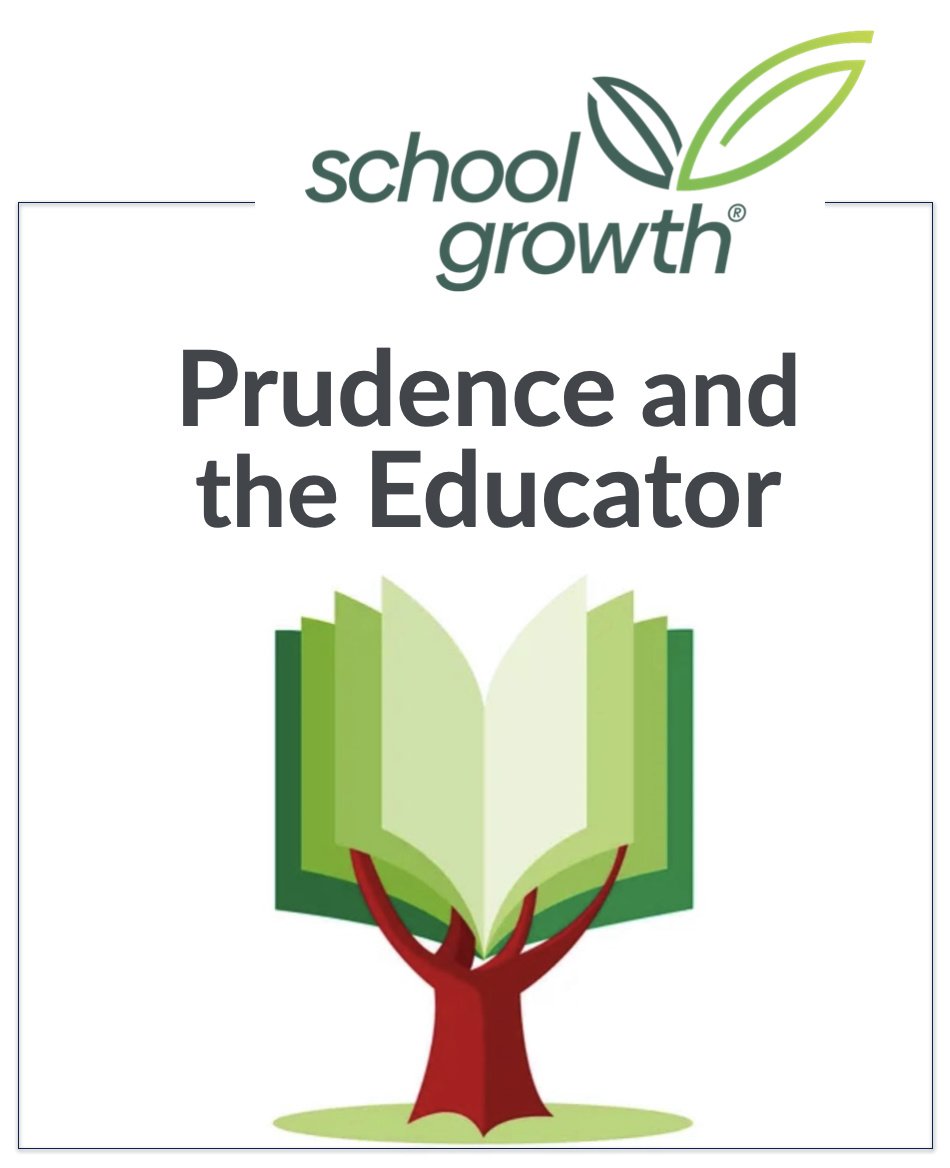
Prudence and the Educator
When is an educated mind most dangerous?
When it lacks a thorough knowledge of and disciplined devotion to the moral virtues that teach what is right, just, and fair. We've all known remarkably smart people who were crippled by corrupt character.
Prudence is a virtue that benefits everyone, but the profound influence of those who serve as educators requires such careful forethought because it comes with greater accountability. This mastery of discernment is a competency that directly determines the quality of schools.
Consider your origins: You were not made to live
as brutes, but to follow virtue and knowledge.
— Dante Alighieri
Virtuous Education Leadership is vital to our purpose. The engagement of colleagues and students grows as we elevate our personal commitment to the long-established virtues of living: Prudence, Temperance, Justice, and Courage.
As Aristotle defined it, prudence is right reason applied to practice, enabling us to judge correctly in any given situation. Our character shapes our goals and behavior, which has a profound impact on our missional outcomes and the lives we touch.
Prudence is the virtue by which we recognize our divine duty and choose to fulfill it.
It's Perspective, where we see people and interactions through a much wider lens.
It's Problem-solving, with insight and critical thinking that is distinctively developed.
It's Practice, withstanding the fear and expectations in favor of decisive leadership.
Prudence is foresight and far-sightedness.
It's the ability to make immediate decisions
on the basis of their longer-range effects.
— John Ortberg
Prudence enables us to expertly navigate daily decisions with remarkable wisdom and leadership that recognizes these different conditions and uses the best method.
- Some decisions consider what is the right thing to do based on Truth and law.
- Other decisions involve an evaluation of what is just, assessing the greater good.
- Fairness is the main question in other situations, with individual needs considered.
Excellence is realized through wise choices in those daily decisions that begin when we first arise, continue throughout the day, and linger as we conclude the evening.
Those who are prudent are particularly careful about what they negotiate within. Advantage goes to those who stay true to their values and who stay true to their goals.
Negotiating with ourselves most often leads to undesirable results.
Life has no blessing
like a prudent friend.
— Euripides
We are motivated not only by the details of the law and handbook, but even more so by a genuine love for people and a desire to teach, coach, support, prod, and inspire. The integrity of our conduct and decisions produces a trustworthy model to emulate.
True joy and real worth are found in developing a reputation for wisdom and virtue. That requires humble hearts and minds that are able to intentionally seek and willingly receive.
May your knowledge in prudence continue to grow, my friend, enabling you to avoid the people and pitfalls that long to compromise your calling.

.png?width=1000&height=199&name=SG-Logo3-Transparent-1000x199px%20(1).png)




